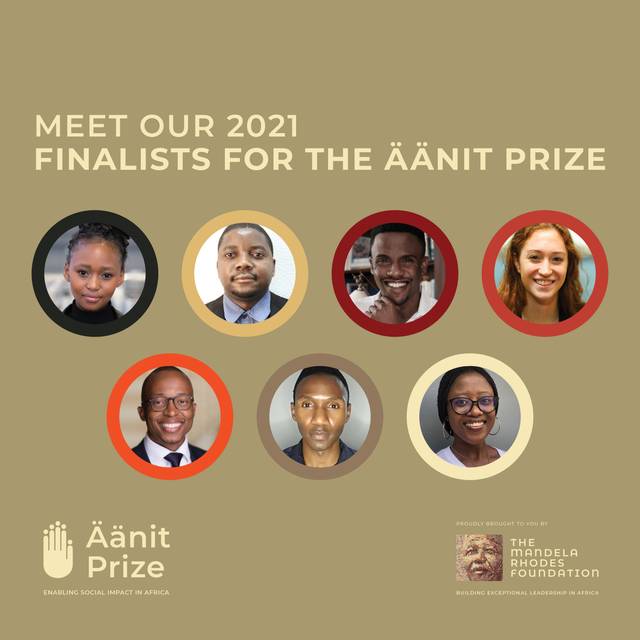
Foundation News
Seven finalists in the running to win $80k for socially impactful projects in Africa
Seven young leaders have been shortlisted to win up to $80 000 for their socially impactful ventures in Africa. The finalists run transformative projects in key areas of impact ranging from educational technology to sustainable fashion and public health. They come from Nigeria, Kenya, South Africa, Zimbabwe, Malawi and Canada.
Following a final round of evaluation by a panel of expert judges, the winners will be announced live in a special ceremony co-hosted by award-wining actor Masasa Mbangeni and MRF CEO Judy Sikuza, on the 23rd of October 2021 at 18:30 SAST. The public and the press are invited to join the livestream for the awards and to hear from some of Africa’s exceptional minds in an intimate Q&A between the judges and the finalists.
The Mandela Rhodes Foundation is offering the prize for the first time in 2021. “When I look at the powerful potential of these seven ventures and the excellent work they have done so far, I feel optimistic about the catalytic effect that this prize can have. The finalists are innovators and leaders of high caliber. They are leaders who see Africa’s challenges as opportunities, and have the vision, expertise, and determination to deliver,” said Sikuza.
The seven finalists for the Äänit Prize are:
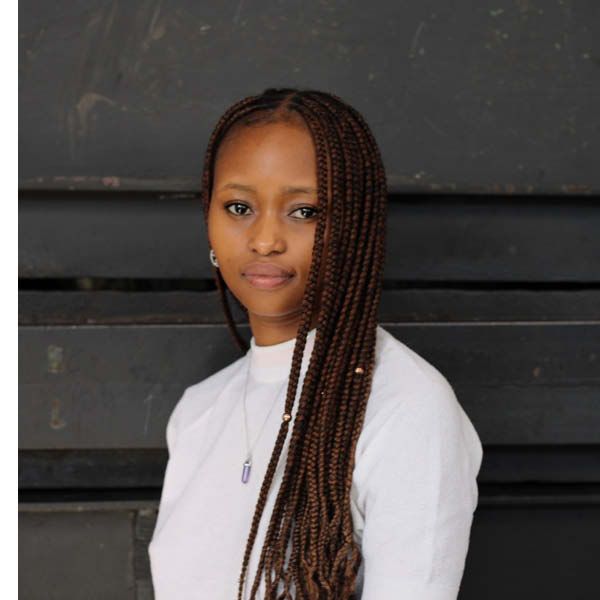
- Esethu Cenga: Rewoven, “Turning waste into fabric and fixing fast fashion”
Every second, the equivalent of a rubbish truck load of clothes is burnt or buried in landfill. The clothing industry is one of the most polluting in the world, generating 90 millions tons of waste annually, of which only 1% is recycled. Vast amounts of textile waste is generated in the production process, and the majority of all clothing waste is dumped in Africa. Rewoven aims to tackle this challenge through textile recycling. Rewoven diverts textile waste from landfill by collecting it from source and recycling it into new fabric through a manufacturing process that uses 99% less water and 50% less CO2 emissions. This fabric has the same look and quality as fabric made from virgin fibers. In addition to cleaning up the clothing industry, the labour-intensive textile recycling process provides an opportunity to create jobs. This is significant in the context of South Africa’s unemployment crisis.
“Rewoven’s solution has the potential to revive and innovate the local clothing industry – an industry inextricably linked to job creation in a sector where women make up 75% of the labour-force,” said co-founder and South African Mandela Rhodes Scholar Esethu Cenga.
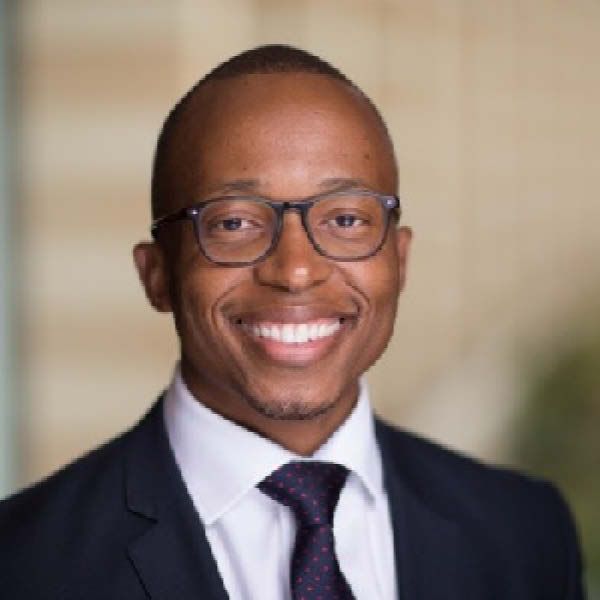
- Vuyane Mhlome: Quro Medical, “A hospital at home”
Quro Medical is a digital health tech start-up based in South Africa, where the healthcare system is overburdened. Quro’s focus is on providing hospital-level care for patients without them needing to leave home. Quro aspires to build Africa’s biggest virtual hospital. The Hospital at Home is powered by cutting-edge technology and supported by highly skilled clinical staff, protocols and best practices. When patients are referred by their doctors, Quro gives them monitoring devices which collect health data minute-by-minute. This data is analysed constantly via a 24/7 monitoring site. The doctor can access this platform and easily manage the patient’s treatment plan. Constant monitoring allows the slightest change in the patient’s health data - such as heart rate or blood pressure – to be picked up. This provides early warning about any possible deterioration, in time to get them the necessary healthcare.
“Covid-19 has shown a huge need for this type of care. Our hospitals have struggled with bed capacity and limited resources and healthcare workers are run off their feet. Even without a pandemic, resources are strained. We have come up with an innovative way to tackle these challenges,” said co-founder Vuyane Mhlome, a South African Rhodes Scholar who co-founded Quro with Zikho Pali and Rob Cornish in 2018.
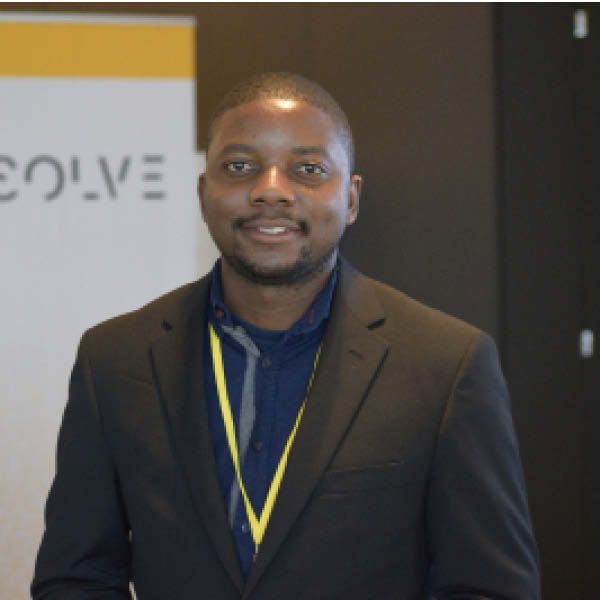
- James Tayali: Keki-Mawe, “Nutritious food products and effective agriculture”
Hunger and malnutrition are critical public health problems in Malawi. Keki-Mawe uses innovation and food science to produce simple but highly nutritious food. Keki-Mawe makes iron fortified powders, biscuits and instant porridge from locally sourced ingredients. These products are rich in nutrients such as iron, folate, calcium, proteins and vitamins, which are essential for human growth and can reduce the risk of developing health problems such as anaemia and malnutrition. Keki-Mawe also empowers rural farmers with innovative agricultural training to grow nutritious crops, increase yields, and improve resilience in the face of climate change. Some of this produce is procured as raw materials for the Keki-Mawe food products.
“Nutritional supplementation through simple but highly nutritious food is in high demand in Malawi. Our aim is to help the government to meet the United Nations Sustainable Development Goal Two of reducing hunger and malnutrition, through agriculture and food security interventions in Malawi,” said founder James Tayali, a Malawian Mandela Rhodes Scholar and health innovation specialist.
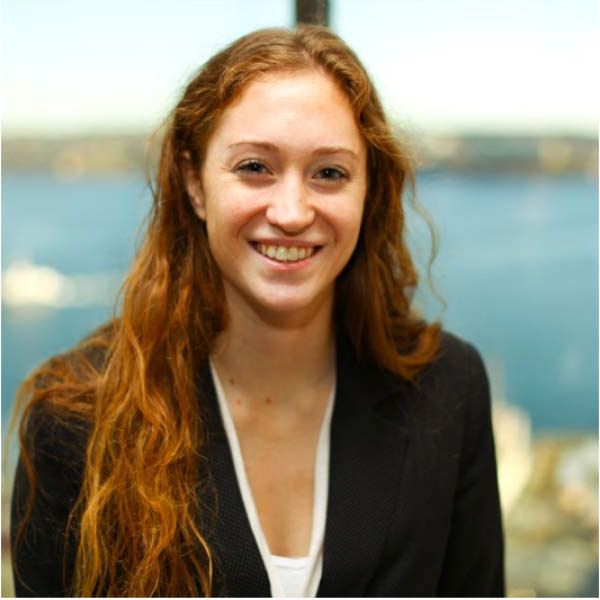
- Sarah Burns: Nia Crowdfund, “Connecting African businesses to much-needed investment”
There are many businesses in Africa which need a significant boost in capital but are too small to take on the huge amounts of money that most investors require. Additionally, potential investors may not have access to the right networks and businesses. Nia seeks to help shrink this SME financing gap through alternative financing methods. Nia supplies between $100 000 and $1 000 000 to exceptional African businesses. This capital is sourced via crowdfunding, which makes it possible to work with investors’ varying appetites for risk and makes it easier to raise for SMEs and start-ups stuck in the “missing middle”. The minimum investment per deal is at $135, which means that Nia makes African markets accessible to all types of investors. Nia uses local partners such as angel investors or accelerators, to support business growth and development post-investment.
“Nia’s primary goal is to make investing in Africa easier, cheaper, fully transparent, and more accessible to help bring in much needed investment and shrink the $140 billion dollar ‘missing middle’ financing gap. We can find ‘purpose’ with our finances by fuelling local business growth and prosperity,” said founder Sarah Burns, a Canadian Rhodes Scholar and impact investment expert.

- Kenechukwu Ikebuaku: Mozisha, “A skills factory getting African youth job-ready”
Kenechukwu Ikebuaku: Mozisha, “A skills factory getting African youth job-ready”
Youth unemployment is a major challenge in many African countries; at its root lie inadequate job creation and the lack of skills or skills mismatch on the part of the job seekers. Mozisha seeks to close the skills gap between industry and job-seekers through Digital Apprenticeships. The company connects learners with businesses in order to develop their skills in line with the demands of the labour market. Unlike platforms that are theory-based, Mozisha focuses on the practical dimension of learning, by immersing learners in real businesses and projects. Learners also gain access to mentors, a supportive community, and are provided with further opportunities to monetise their skills.
“Mozisha is building Africa’s largest talent development ecosystem powered by a sophisticated digital platform which will help young Africans identify, nurture and monetise their skills while providing a conduit for recruiters to have access to skilled talents across Africa,” said founder Kenechukwu Ikebuaku, a Mandela Rhodes Scholar from Nigeria.
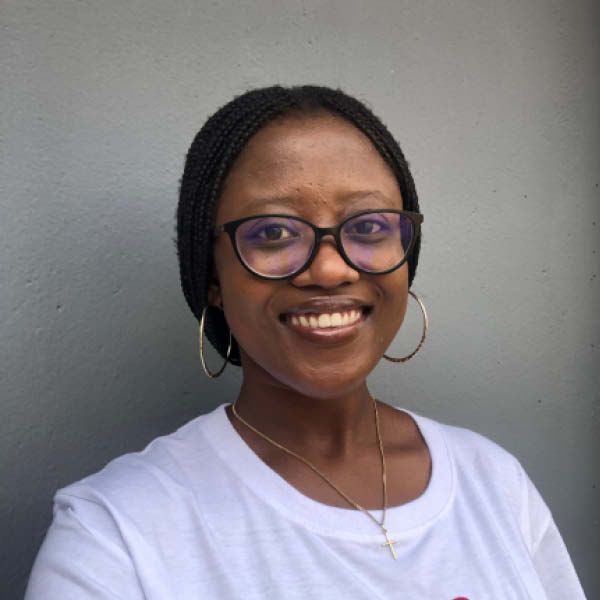
- Chido Dzinotyiwei: Vambo Academy, “Language learning for Africans by Africans”
Africa is the fastest growing and second largest continent in the world yet African knowledge resources are difficult to source. Vambo Academy is an educational technology (EdTech) platform that uses digital resources to offer language learning, translation and knowledge services. Vambo teaches indigenous languages online and offers a dictionary, blog posts and podcasts on cultural topics. A student may enrol for the self-learning tool and learn an indigenous language at their own pace or they may book a virtual session with an experienced tutor for a personalised learning experience.
“We are committed to building resources that drive inclusion, localise experiences, campaigns and business by making it easier for language to form the basis of the story. We believe that every African language and culture deserves to be preserved and learned,” said co-founder Chido Dzinotyiwei, a Zimbabwean Mandela Rhodes Scholar and entrepreneur.
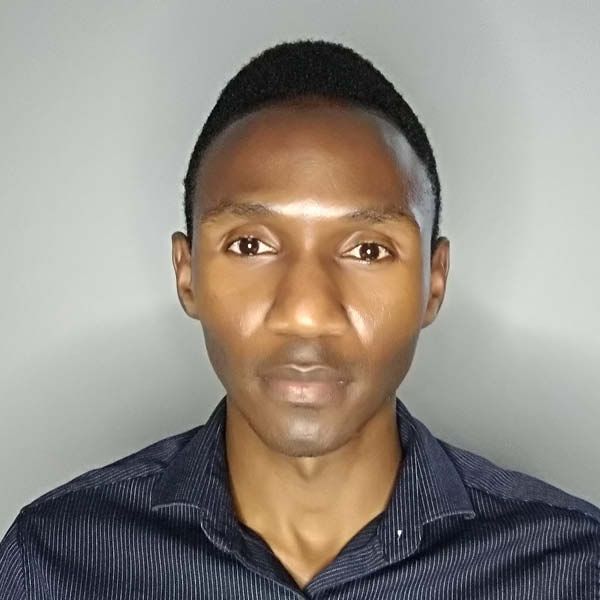
- Sammy Sambu: Bartanel Discovery, “Decentralising the malaria vaccine”
Rural, remote and low-income patients are often excluded from clinical trials in Africa. Currently, only formally recognised research sites can conduct vaccine trials, which limits participation. Working on the problem of malaria in Kenya, Bartanel Discovery is proposing decentralised, mobile-enabled clinical trials situated in high-malaria regions, that can demonstrate that the vaccine works. Using mobile technology, the project seeks to secure the continuity of service and consistency in health-seeking behaviour. This will lead to more people enrolling and completing the malaria vaccine program. Malaria takes a huge toll on people and economies in some African countries. If we can immunise enough people against malaria, there will be many positive benefits: if less children die of malaria, families are less likely to hedge against infant mortality by having more children. This supports family planning. Preventing malaria will also improve early development and educational outcomes among children, by reducing the loss of school time due to sickness.
“If it can be proved that a mobile-enabled deployment of the malaria vaccine is effective in a real-world context, this will enable almost immediate implementation in child and adult immunisations,” said Kenyan Rhodes Scholar Sammy Sambu, MD of Bartanel Discovery.
Find out more about the finalists and their ventures here.
More about the Äänit Prize
The Äänit Prize is a new initiative of The Mandela Rhodes Foundation, Nelson Mandela’s official organisation for leadership development. The prize awards $80 000 per year to projects and organisations that can deliver positive social impact in Africa. It is open to alumni of the Mandela Rhodes Scholarship and the Rhodes Scholarship, and is funded by Ezrah Charitable Trust which was started by long-time MRF donor and Rhodes Scholar David Cohen.





